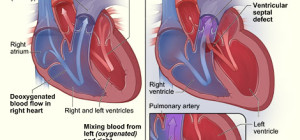 Fall means invasive rodents like rats and mice will be looking for a warm place to nest. Your pantry, attic, and walls are all inviting homes to these pests, and once they enter your home, they will quickly create an infestation. Keeping these rodents out of your home should be your top priority this fall, as they pose serious health risks for you and your family. Rats and mice carry diseases that can be detrimental to humans, and their droppings and saliva can contaminate your food. They also play host to parasitic insects that transmit disease, as well. Following are the most common diseases rats transmit to humans when they infest a home.
Fall means invasive rodents like rats and mice will be looking for a warm place to nest. Your pantry, attic, and walls are all inviting homes to these pests, and once they enter your home, they will quickly create an infestation. Keeping these rodents out of your home should be your top priority this fall, as they pose serious health risks for you and your family. Rats and mice carry diseases that can be detrimental to humans, and their droppings and saliva can contaminate your food. They also play host to parasitic insects that transmit disease, as well. Following are the most common diseases rats transmit to humans when they infest a home.
Leptospirosis
Leptospirosis is a fairly common disease that can result in muscle pains, chills, diarrhea, coughing, and headaches; however, more severe cases can be life-threatening. Dangerous cases of leptospirosis usually only affect people with preexisting conditions in the kidneys and liver, as well as young children and the elderly. The disease is transmitted to humans when water or soil contaminated with infected urine comes in contact with a break in the skin, or is consumed. The good news is that humans are rarely infected and cannot spread the disease to other humans.
Salmonellosis
Salmonellosis, commonly referred to as salmonella, can be transmitted to humans through consumption of food and water contaminated by the rodent's infected feces, urine, and bedding material. Symptoms include diarrhea, fever, and abdominal cramps, and develop 12 to 72 hours after infection.Salmonellosis will usually pass through your system on its own, but special attention should be placed on avoiding dehydration.
Rat-Bite Fever
According to the CDC, rat-bite fever is an infectious disease that can lead to severe illness and death. Humans can contract the disease through rat bites, as well as by consuming food or water that has been contaminated with their saliva or droppings. Symptoms include fever, vomiting, headaches,muscle and joint pain, and rashes. These symptoms usually occur within 3-10 days after exposure but may be delayed for up to 3 weeks.
Plague
Most everyone knows the plague as the pandemic that killed millions of people in the 1800s. Although we initially thought this was due to the rats themselves, it was actually the result of parasitic fleas the rats carried with them. Today, rats can still carry these fleas and transfer the disease to humans. Symptoms include fever, chills, weakness, and swollen lymph nodes. The plague can lead to death if untreated, but antibiotics can easily treat the disease.
Hantavirus
Rats and mice can transmit the Hantavirus to humans, which is an extremely dangerous disease as no treatment or vaccine exists. In fact,approximately 40% of people who get Hantavirus will die. Although the virus can be transmitted through a bite, most humans contract the disease by inhaling dust contaminated with the rodent's droppings, or if the urine comes in contact with the eyes and mouth. Symptoms include fatigue, fever, and muscle aches in the thighs, hips, back, and shoulders.
Lymphocytic Choriomeningitis
Lymphocytic Choriomeningitis is a viral infectious disease that is transmitted to humans when they come in contact with rodent saliva, droppings, or urine. Although harmful to all humans, the disease is especially dangerous for a pregnant woman as it can cause birth defects. Symptoms include fever, stiffness in the neck, malaise, lack of appetites, muscle pains, nausea, headaches, and vomiting. Symptoms usually occur 1-2 weeks after exposure to the virus.
Fall is a time when pests are looking for a warm place to nest throughout the winter. Although other common invasive pests may cause a nuisance, most won't pose a serious health risk like rodents do. Preventing rodents from entering your home is the best way to keep your family safe this fall. If you notice any signs of their presence, such as droppings or holes gnawed in your wall, take immediate actions to have them removed before your family is put in danger.
Daniel Mackie, owner of Greenleaf Pest Control, is a Toronto pest control expert well-known as an industry go-to guy, an innovator of safe, effective control solutions, and is a regular guest on HGTV. Mackie, along with business partner Sandy Costa, were the first pest control professionals in Canada to use detection dogs and thermal remediation for the successful eradication of bed bugs. In his free time, he is an avid gardener.







